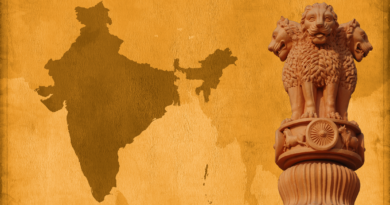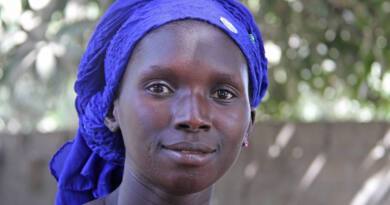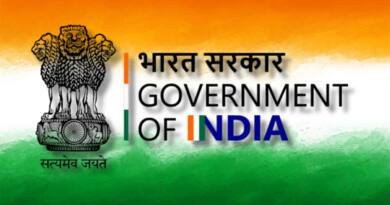India’s Diplomatic Challenges Amid Political Shifts in Neighbouring Countries
India, as a rising global power, has significantly expanded its diplomatic, economic, and strategic footprint over the past few decades. As one of the world’s fastest-growing major economies and a prominent voice in international forums like the G20, BRICS and the United Nations, India has positioned itself as a key player in global geopolitics. Its growing economic and strategic alliances have strengthened its influence, particularly in South Asia, where it has traditionally been the dominant regional power. However, India faces increasing competition from China, whose Belt and Road Initiative (BRI), high interest investment projects and aggressive diplomacy have made deep inroads into many of India’s neighbouring countries.
Sri Lanka
Sri Lanka’s political landscape has seen critical shifts that impact India’s strategic interests. Traditionally, the island nation balanced its relations between India and China, but the recent election of Anura Kumara Dissanayake signals a possible shift toward greater alignment with China. Dissanayake’s left-wing government may continue the trend of relying on Chinese investments, especially given Sri Lanka’s significant debt from previous projects under the pro-China Rajapaksa administration, where China’s growing presence poses a direct challenge to India’s security and economic interests.
Rajapaksa’s government had favoured Chinese infrastructure investments, leading to the controversial leasing of Hambantota Port to China for 99 years due to inability to repay loans. This has raised alarms in New Delhi, as India considers Sri Lanka part of its strategic backyard. The new government has already stated they don’t want to be a sandwich in between India and China diplomatically.
Bangladesh
Bangladesh has historically been a close ally of India, especially under Prime Minister Sheikh Hasina, who fostered strong ties through trade, security cooperation, and connectivity initiatives. However, the current political unrest, marked by widespread protests, has led to the formation of a caretaker government under Muhammad Yunus, who is known for his critics towards India and pro-China & pro-Pakistan views.
The involvement of Jamaat-e-Islami, a radical group critical of India’s interests, has been pivotal in mobilizing protests against Hasina’s administration. If Yousef’s government shifts Bangladesh’s foreign policy closer to China and Pakistan, India could face significant challenges in maintaining its influence. Such a pivot would undermine India’s strategic interests, particularly in combating cross-border terrorism and fostering regional trade. China has already invested heavily in Bangladesh through its Belt and Road Initiative (BRI), and a government aligned with Beijing could further deepen these ties, diminishing India’s foothold in the region.
Nepal
Nepal has long presented both opportunities and challenges for India. Traditionally, the Nepali Congress Party has maintained strong ties with India, emphasizing cooperation in trade and infrastructure development. But whenever communist parties come in power, they shift the political landscape towards closer ties with China. The current prime minister KP Sharma Oli is also following the same footsteps.
These leftist factions have embraced Chinese investments and projects under the BRI, complicating India’s diplomatic efforts. Cross-border issues. This is raising concerns about India’s influence in its northern neighbour. Nepal has accused India of imposing an undeclared blockade in 2015 which resulted in fuel shortage.
Maldives
The Maldives has witnessed significant political changes that create new diplomatic challenges for India. The election of Mohamed Muizzu, who has a pro-China stance, poses a considerable concern for New Delhi. His administration’s first actions, including the request to remove Indian military troops stationed in the Maldives, reflect a desire to distance the nation from India and strengthen ties with China.
Under the previous government led by Ibrahim Solih, an “India First” policy emphasized strong bilateral ties, especially in economic cooperation and maritime security. However, Muizzu’s approach signals a shift back towards China, particularly through infrastructure investments and development projects. Additionally, anti-Indian sentiments, fuelled by perceptions of competition over tourism between Lakshadweep and the Maldives, complicate diplomatic relations.
Conclusion
The political shifts in Sri Lanka, Bangladesh, Nepal, and the Maldives present significant diplomatic challenges for India. The rise of pro-China governments threatens India’s traditional influence in South Asia. To navigate these complex landscapes, India must enhance economic, cultural, and security ties with its neighbours while addressing their domestic political concerns. India should develop good relationships with all major political parties of the neighbouring countries. Indian foreign minister Jaishankar’s visit to all three presidential candidates of Sri Lanka during the campaign must be seen in this context. Over dependence on a single political party or a political leader will lead to a diplomatic disaster for India.
Strengthening regional cooperation through initiative with local interests—such as infrastructure development, trade partnerships, and cultural exchanges—will be critical. Additionally, India must be vigilant in countering Chinese influence, as Beijing continues to expand its presence in the Indian Ocean and beyond. Balancing these strategic interests while fostering strong relationships will be essential for India’s foreign policy in the coming years.





